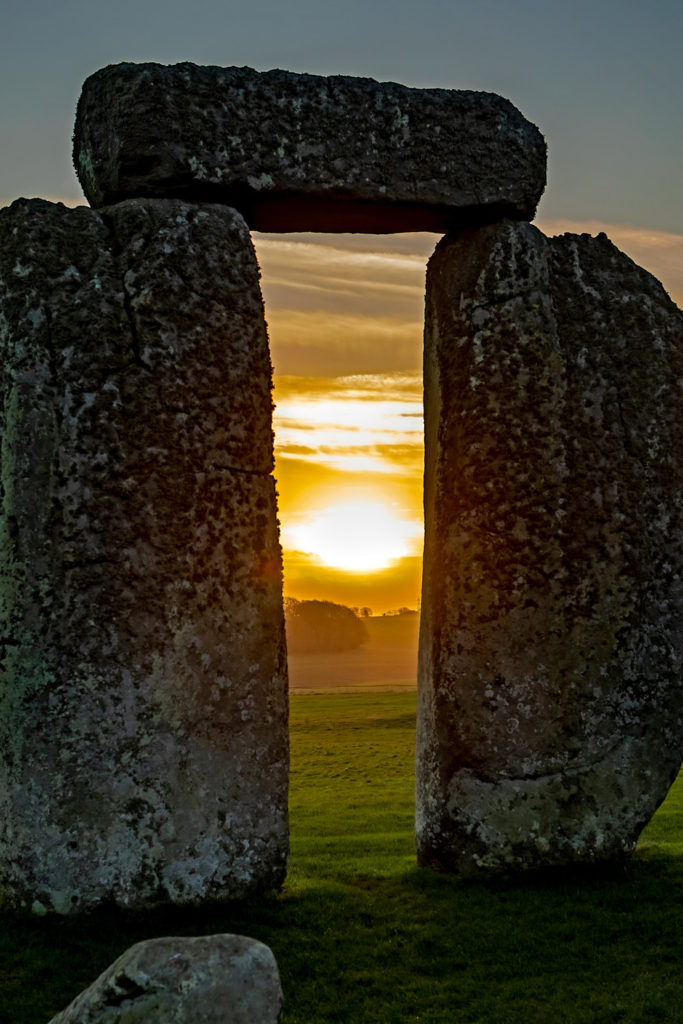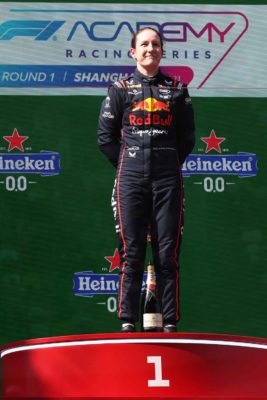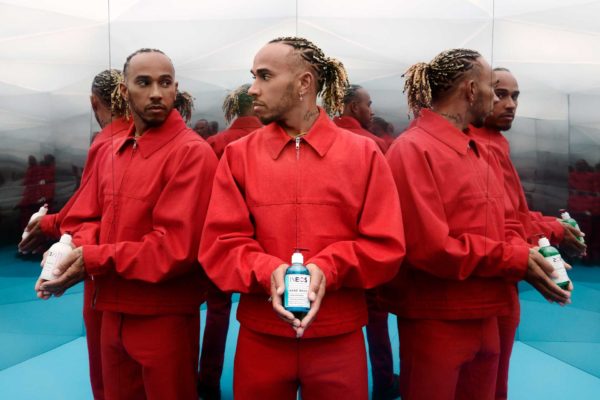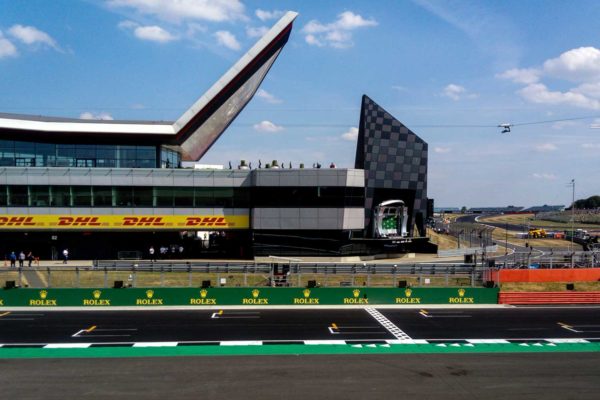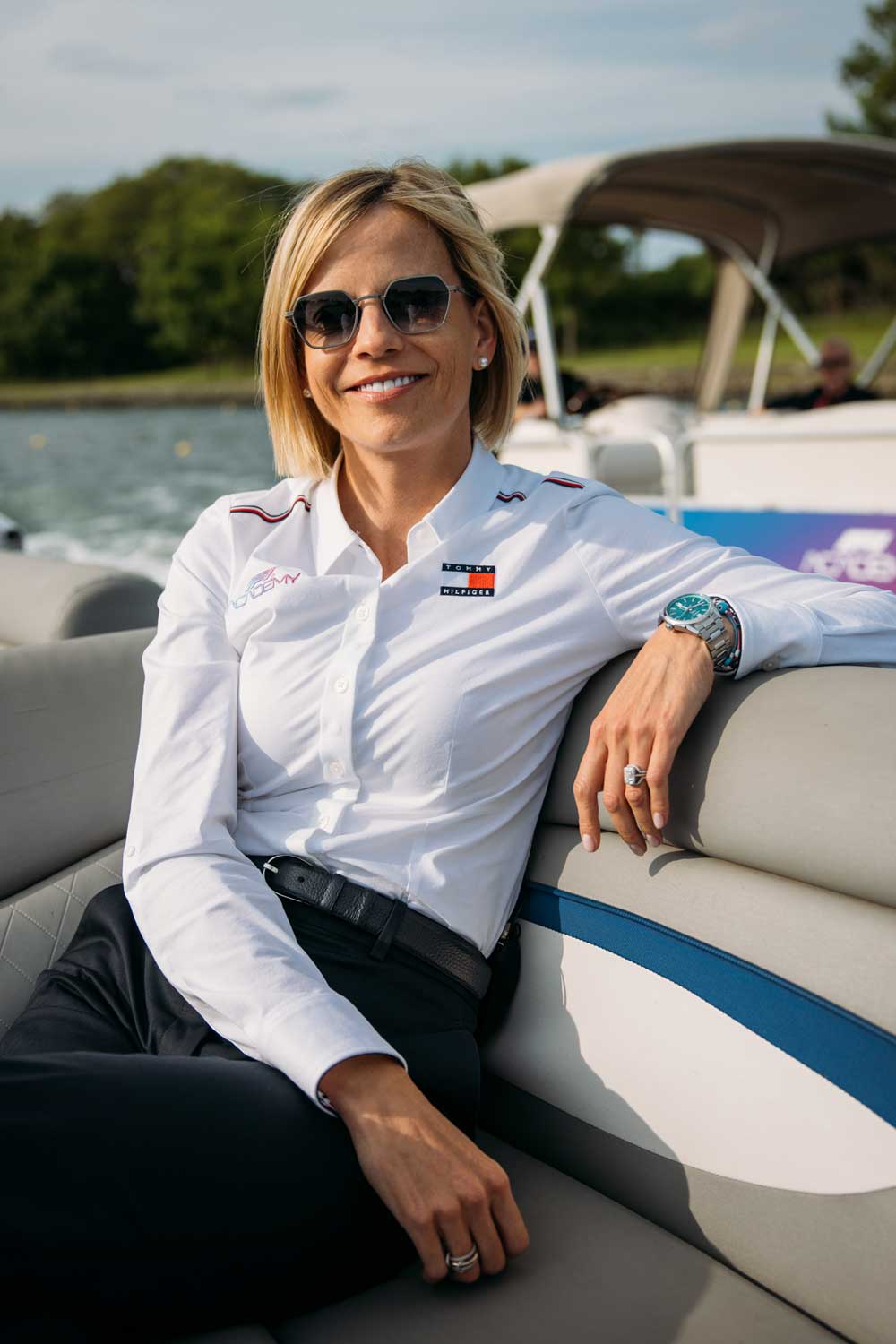
Getting To Know F1 Academy’s Susie Wolff
By
8 months ago
One of the most important women in motorsport and star of the new Netflix show F1: The Academy.
From a professional racing driver to the MD of The F1 ACADEMY, Susie Wolff has never chosen to tread the easy path. She was the first woman in 22 years to drive in an F1 race weekend (for Williams in 2014), the former Venturi Formula E CEO, and is the current Managing Director of the F1 ACADEMY. The ACADEMY is an all-female racing category launched with the aim to increase representation for women in motorsport and create potential pathways for progression that could lead all the way to F1. Susie is also the founder of “Dare to Be Different” and was awarded an MBE for services to women in sport.
If it sounds like I’m gushing, it’s because I am: as a fan of women’s sports and those working to increase representation and platform its stars, Susie is someone whose work I very much admire. And along with millions of others, I got to take a closer look at it this year, when the first season of F1: The Academy aired on Netflix showing Susie at the helm of the competition as 15 young women competed for the 2024 title and a shot at winning a fully-funded seat in GB3. (You can read our interview with British racer Alisha Palmowski, who will star in season 2, here.) They say never meet your heroes and as fate would have it Susie was called away on the day of our interview, so our Q&A was conducted via email, but as she tells me here, she’s ‘just getting started’; so I hope to catch her soon as the F1 ACADEMY’s star continues to rise, and hers along with it.
Country & Town House X Susie Wolff: Q&A
Can you briefly tell me how you started out in racing and how your path led you here, to the head of the F1 Academy?
I discovered a passion for motorsport early in life. My parents ran a motorcycle dealership, I had my first little motorbike at the age of three and started racing karts at eight. I loved the speed, competition and adrenaline. At the age of thirteen my goal was to make it to F1.
After climbing the ranks of the sport and making it to F1 as a test driver for the Williams F1 Team, it was time to hang up my helmet and I knew I wanted the next generation of young women to be able to learn from my success and from the mistakes that I had made along the way.
I joined as the Managing Director of F1 Academy shortly before the start of our inaugural season in 2023. I realised this was an opportunity I couldn’t turn down. It was a once-in-a-lifetime chance to create lasting change for women within the motorsport industry. From the moment I came on board, I had a clear vision of the direction we needed to take. We set out to create the best possible structure to nurture female talent.
It can feel a bit obvious to talk about being a woman in a male-dominated environment, but it feels more relevant for you than most, would you agree?
Historically, Formula 1 has been a man’s world, but that has changed dramatically in recent years. We are creating role models; we’re inspiring the next generation. Women and girls can now see themselves represented and you cannot underestimate the power of that. Female fans now account for 42 percent of F1’s total fanbase, which is hugely significant. We want all the women watching to know there is a place for them in our sport, on or off track.
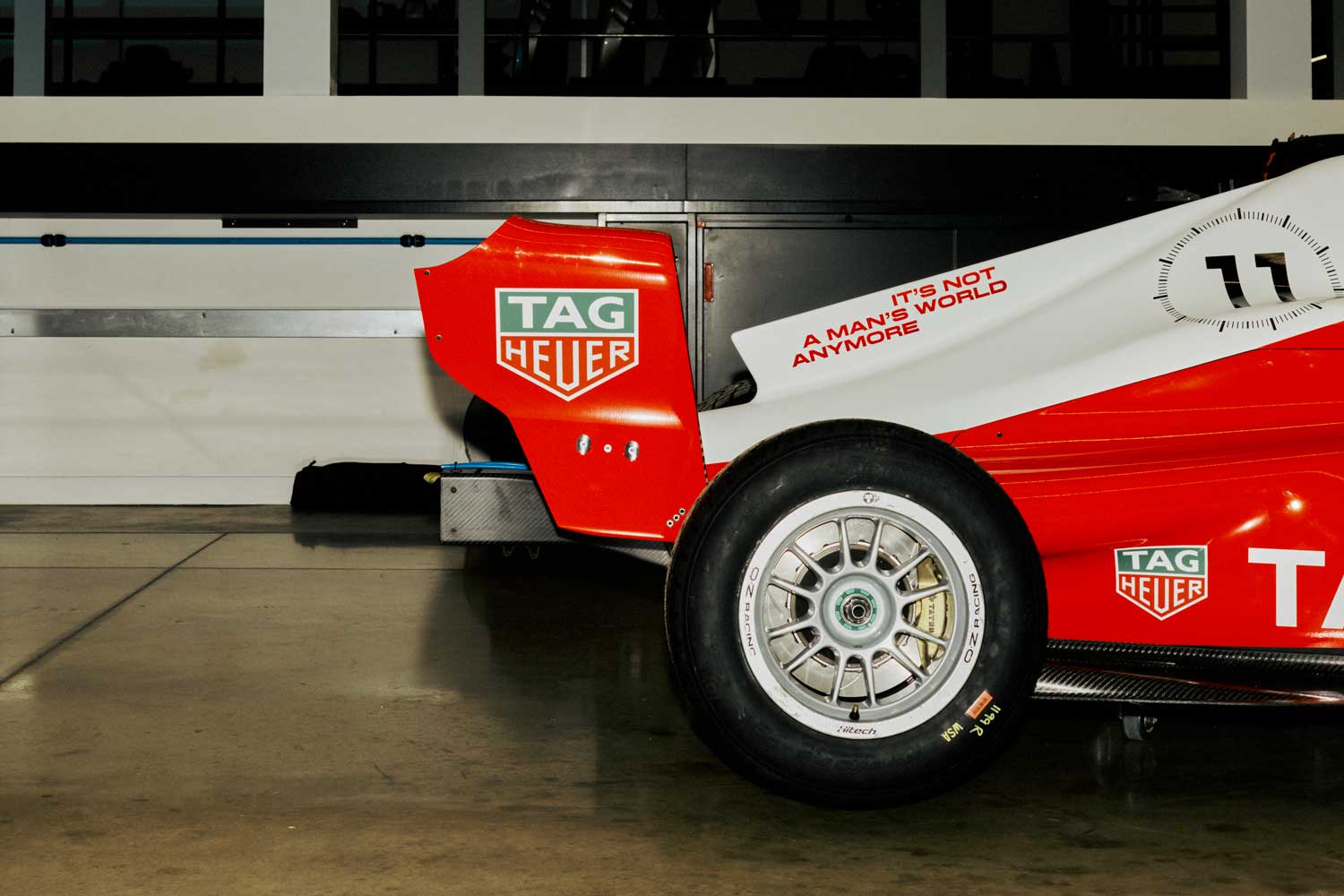
F1 Academy Car
It’s been 11 years since you took to the track in Free Practice, making you the last woman in F1, but you’ve said you expect to see women in F1 within the next decade; can you tell me how far you think we’ve come, and how far we have to go in this area?
I see a lot of talent out there, and I see the possibilities of young female drivers making it. F1 ACADEMY is creating a pathway for female drivers to progress up the single-seater ladder. We know that to get more young girls into our sport, we have to help nurture talent at the karting level. If we don’t increase participation in grassroots karting and support the progression of the most talented, we won’t be able to increase participation at the top of the pyramid. Ultimately, change takes time, and there are only 20 spots on the grid in F1 – getting there is tough regardless of your gender.
What is the single biggest barrier preventing women from finding success in F1?
Participation. We need to encourage more young girls to get involved in motorsport to help nurture their talent. We want to establish a system where female athletes can thrive, creating genuine opportunities and challenging existing perceptions within motorsport to pave the way for a future where talent, rather than gender, determines who reaches the top.
Can you describe the mission of the F1 Academy?
F1 ACADEMY is an all-female series designed to help prepare and develop female drivers to make the step up to higher levels of motorsport. We have 18 of the best young female drivers as a support series to the FIA Formula 1 World Championship. We have the support of all ten Formula 1 teams, and global partnerships which are all rooted in purpose, which are taking F1 ACADEMY to a huge new audience outside motorsport.
F1 is an expensive sport; what role do partnerships with brands like TAG Heuer play in advancing the goals of the F1 Academy, and therefore your personal goals?
It was incredibly important to me that we have partners who believed wholeheartedly in our mission and that all our partnerships were rooted in a shared purpose. F1 ACADEMY is proud to have TAG Heuer as an Official Partner of the series, as well as F1 ACADEMY’s first Official Timekeeper. To me, the partnership reflects a joint commitment to empower female talent and a desire to accelerate change in our sport.
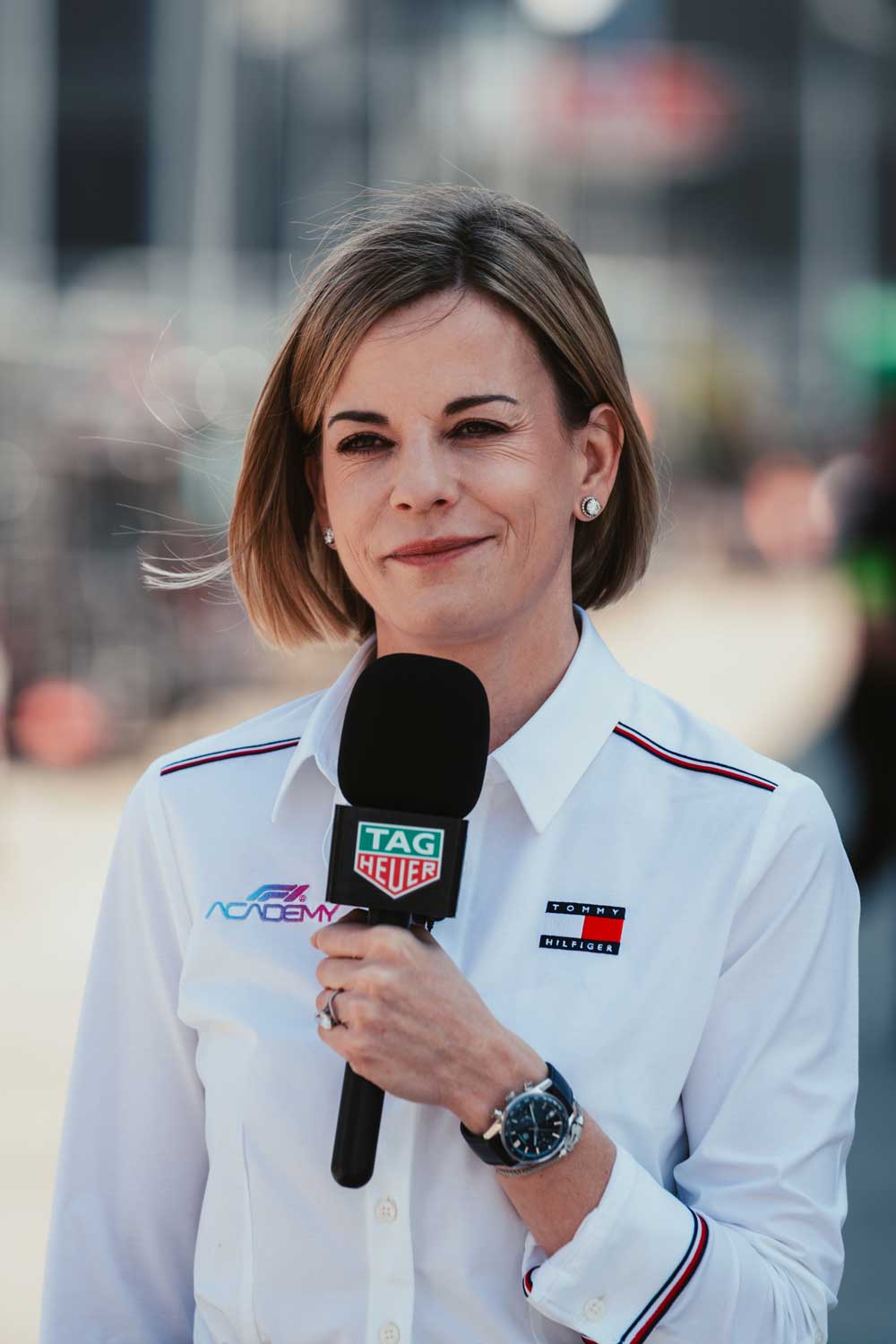
Susie Wolff : ©COCORICOSUN ©LACLEF
What are some of the most exciting developments you’ve seen in the F1 Academy since its launch?
We’re here to show women that this isn’t a man’s world. After only two full seasons, we’re already seeing a positive impact in participation at the karting level, more girls racing and at the front which has never happened in karting before. We expanded our grid to 18 cars this season and saw our documentary series F1: The Academy launch on Netflix.
What advice would you give to young girls who dream of a career in motorsport but may feel it’s out of reach?
If you’re interested in becoming a racing driver, the best advice I can give you is to go out and give karting a go. It’s where all our F1 ACADEMY drivers started, and it’s where every Formula 1 driver started. If you’ve never been karting before, go to a local indoor karting center before working out where your nearest outdoor karting tracks are. Regardless of whether you want to be a driver, an engineer, a presenter, or a journalist, my message to you is simple: go for it.
Can we talk about Netflix’s F1: The Academy? What is your personal view of it, and do you think it is helpful in breaking down barriers that make F1 feel exclusive and inaccessible?
I am incredibly proud. To have the documentary series launch globally with Netflix was not just a huge step forward in visibility for our mission, but also a resounding statement about the momentum and demand for women’s sport.
What does it mean for the future of motorsport if we see a female driver return to the Formula 1 grid, and what role will the F1 Academy play in making that a reality?
A lot of people ask me what success and the future of F1 ACADEMY looks like. On track and off track, it’s helping the most talented women progress in this sport. We are making sure young women know that there is a place for them. Our mission is to change the perceptions of our sport, and we’re just getting started.



